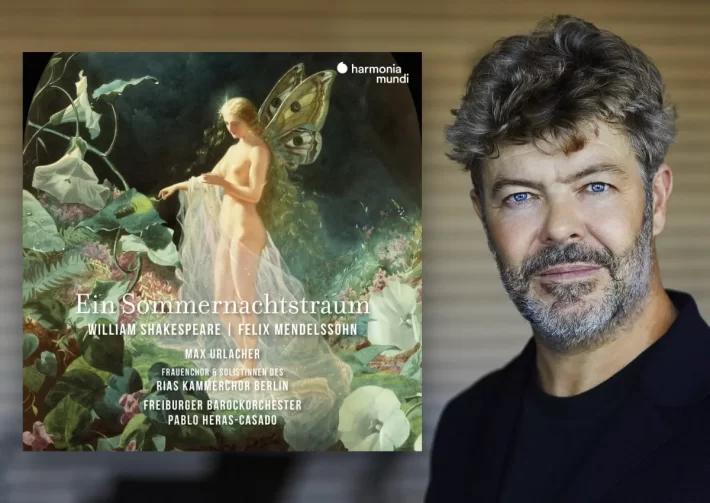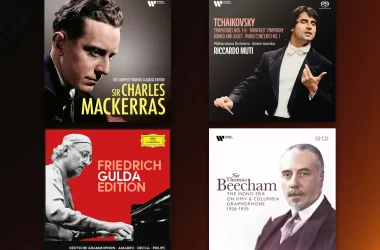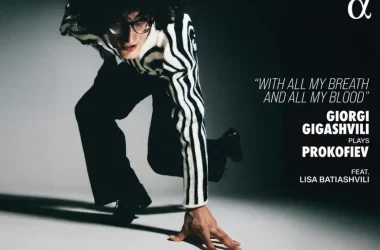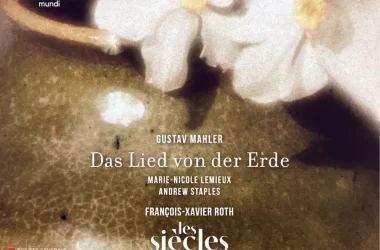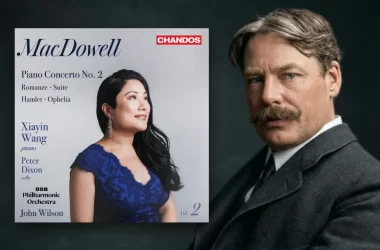This release of Mendelssohn’s A Midsummer Night’s Dream from Pablo Heras-Casado, the Rias Kammerchor, and the Freiburger Barockorchester is a period-instrument performance. The physical CD includes narration in German by Max Urlacher, though listeners have the option of streaming a version without it.
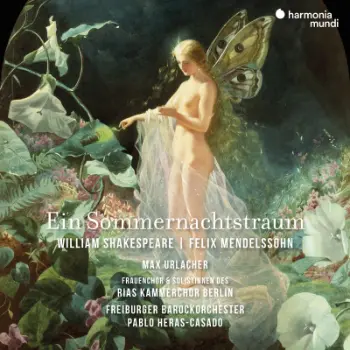
Mendelssohn composed the Op. 21 overture nearly two decades before the subsequent movements (Op. 61), at the age of seventeen. A youthful spirit is indeed at the heart of this 11-minute sonata form movement, alongside an impressive imagination in orchestration.
Instrumental choices significantly influence the character of the overture. A side-by-side listen with a canonical modern recording from Seiji Ozawa and the BSO vividly highlights the differences. While the BSO strings possess a richer tone that lends warmth to intricate textures, the Barockorchester strings offer the lighter timbre typical of period instruments. Their characteristic “scratchiness” suits the vitality Mendelssohn evokes. Coupled with the players’ clarity in fast passages, this overture is scrappy, vivacious—and distinctively different from Jordi Savall’s rendition with Concert des Nations. Savall’s more measured tempo lends elegance rather than energy.
Though period instruments lack the power of modern orchestras, collectively they achieve a substantial and satisfying presence. Despite the overall lightness, Heras-Casado emphasizes Mendelssohnian elegance in the winds, notably the flutes. While I prefer the rounder, less piercing tone of Savall’s winds, the Barockorchester flutists shape their lines with admirable sostenuto. This allows their tones to soar above the accompaniment, creating a vocal quality that aligns beautifully with the entry of actual voices in later movements.
Winds open the Op. 61 section with jaunty energy: each note is clearly articulated in the Allegro vivace (track 2). With numerous call-and-response textures and dovetailing lines, Heras-Casado’s precise direction ensures clarity without becoming mechanical or chaotic. Max Urlacher approaches his narration with gusto; despite occasionally overly forceful syllables contrasting the orchestra’s levity, his vocal inflections enhance the drama and descriptiveness of the reading.
To my ears, the March of the Elves’s tempo felt slightly rushed (track 3). A marginally slower pace might better showcase the playful trills characterizing the elves. Philippe Herreweghe’s period recording demonstrates better pacing, though it sacrifices clarity due to excessive reverb. A highlight of ensemble blending is the horns in the Notturno (track 9). Their velvety tone, enriched by low string resonance, adds subtle beauty. While the melodic line could be slightly more prominent, the understated charm remains enjoyable.
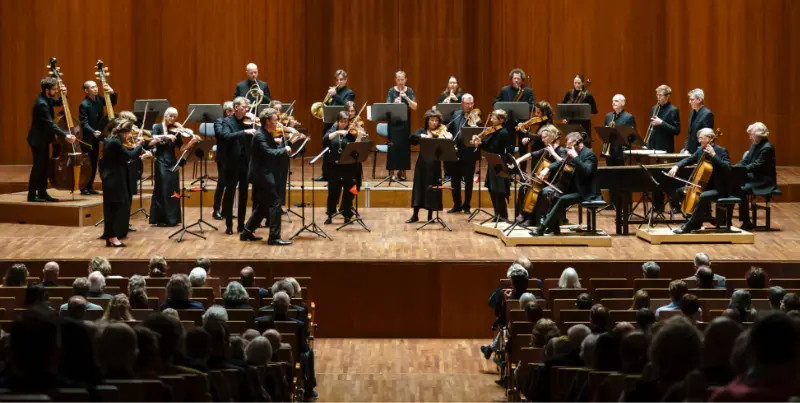
The Freiburg Baroque Orchestra
Soprano Mi-Young Kim, portraying one of the fairies in the following movement (track 4), has a supple voice with an especially glowing quality in higher registers. The choir thoughtfully refrains from overpowering her, creating beautifully layered vocal textures.
Arguably most famous is the Wedding March (track 11). Heras-Casado opts for a brisk tempo emphasizing sprightly dotted rhythms and assertive downbeats. Period instruments might lack the sonic depth of modern ensembles like the London Symphony under Peter Maag, but the Barockorchester captures a balanced blend of elegance and fanfare. In the Dance of the Clowns (track 13), some listeners may find the basses and timpani overly thumpy. However, I appreciated the robust accents, as they effectively drive rhythmic momentum.
This account stands apart for its period sensibility—light on its feet, transparent in texture, and attentive to the score’s rhythmic intricacies. It’s less about sweeping grandeur and more about detail, contrast, and color. Those open to hearing Mendelssohn through this lens will find much to appreciate.
Recommended Comparisons
Ozawa | Savall | Abbado | Maag | Herreweghe
Top image: ©️ Javier Salas

Album Details |
|
|---|---|
| Album name | Mendelssohn – A Midsummer Night’s Dream |
| Label | Harmonia Mundi |
| Catalogue No. | HMM902724 |
| Artists | Freiburger Barockorchester, Max Urlacher (narrator), Rias Kammerchor Berlin, Pablo Heras-Casado |

